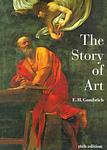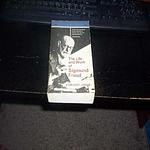The Greatest British "Austria" Books of All Time
Click to learn how this list is calculated.
This list represents a comprehensive and trusted collection of the greatest books. Developed through a specialized algorithm, it brings together 300 'best of' book lists to form a definitive guide to the world's most acclaimed books. For those interested in how these books are chosen, additional details can be found on the rankings page.
Genres
Countries
Date Range
Reading Statistics
Click the button below to see how many of these books you've read!
Download
If you're interested in downloading this list as a CSV file for use in a spreadsheet application, you can easily do so by clicking the button below. Please note that to ensure a manageable file size and faster download, the CSV will include details for only the first 500 books.
Download-
1. The Open Society by Karl Popper
This book is a critique of totalitarianism and a defense of liberal democracy. The author argues against the concept of a perfect, immutable society, instead advocating for an "open society" that allows for constant change and improvement. He criticizes theories of historical determinism and the notion of "the collective", emphasizing the importance of individual freedom and human rights. The book also examines and challenges the philosophies of Plato, Hegel, and Marx, linking their ideas to the rise of fascism and communism in the 20th century.
-
2. The Story of Art by E. H. Gombrich
"The Story of Art" is a comprehensive guide to the history of art, covering a vast span of time from prehistoric art to contemporary movements. The book provides insights into the cultural, historical, and social contexts that have influenced the creation of art throughout various periods. It offers detailed analysis of major works and styles, and discusses the techniques used by artists from different eras. It is not only an exploration of the evolution of art but also an attempt to understand the motivations and inspirations of the artists behind the works.
-
3. The Third Man by Graham Greene
Set in post-World War II Vienna, the story revolves around an American writer who arrives in the city to discover that his childhood friend, whom he had planned to meet, has recently died in a mysterious accident. As he delves deeper into the circumstances surrounding his friend's death, he uncovers a web of intrigue involving black market dealings, corrupt officials, and a complex moral landscape. The writer's investigation leads him to question loyalty, morality, and the ambiguous nature of friendship in a city divided by occupation and rife with espionage and criminality.
-
4. A Time Of Gifts by Patrick Leigh Fermor
The book is a vivid memoir that chronicles the adventures of a young man as he embarks on a remarkable journey on foot across Europe in the 1930s. Starting from the Hook of Holland, he traverses through landscapes and cities, encountering a diverse tapestry of cultures, languages, and historical remnants. Along the way, he is welcomed by a variety of individuals, from aristocrats to peasants, who enrich his experience with their stories and hospitality. His travels provide not only a physical journey through the continent but also a journey through time, as he reflects on the complexities of Europe's past and the ominous shadows cast by the approaching Second World War.
-
5. The White Hotel by D. M. Thomas
The book follows the life of Lisa Erdman, a half-Jewish opera singer, through her erotic fantasies, her analysis with Sigmund Freud, her subsequent life in pre-war Vienna, and her eventual death in a Nazi concentration camp. The narrative is presented in a variety of styles, including erotic poetry, Freud's case study, third-person narrative, and a surrealistic opera libretto. The novel explores themes of sexuality, psychoanalysis, and the human capacity for evil and destruction.
-
6. The Hare with Amber Eyes: A Family's Century of Art and Loss by Edmund de Waal
This book is a family memoir that traces the journey of a collection of miniature Japanese sculptures, called netsuke, through generations of a wealthy Jewish family. The narrative delves into the family's rise to prominence in the late 19th and early 20th centuries, their survival during the Nazi regime, their post-war struggles, and their eventual decline. The author uses the netsuke as a lens to explore the themes of art, loss, and family legacy.
-
7. The Life And Work Of Sigmund Freud by Ernest Jones
This biography provides a comprehensive look into the life and theories of one of the most influential figures in the field of psychoanalysis. It delves into his early life, education, and the development of his groundbreaking theories on the human psyche, dreams, and the unconscious. The book also explores his personal struggles, relationships, and the controversies that surrounded his work, offering an in-depth view of his professional achievements and the lasting impact of his ideas on psychology and psychotherapy.
-
8. Midnight In Chernobyl by Adam Higginbotham
"Midnight In Chernobyl" is a non-fiction book that tells the story of the 1986 Chernobyl nuclear disaster. The book provides a detailed account of the events leading up to the explosion, the immediate aftermath, and the long-term effects of the disaster. It also explores the political and social context of Soviet Ukraine at the time, and the impact that the disaster had on the country and the world. The book draws on interviews with survivors, officials, and experts, as well as archival documents and scientific research, to provide a comprehensive and compelling narrative of one of the worst nuclear accidents in history.
-
9. Haydn by H.C. Robbins Landon
This book provides an in-depth exploration of the life and works of Joseph Haydn, a pivotal figure in the Classical era of music. It delves into his early years, his development as a composer, and his significant contributions to the symphony and string quartet. The biography also examines Haydn's relationships with other prominent composers, his patrons, and the broader socio-political context of his time. Rich with detailed analyses of Haydn's compositions and insights into his influence on Western music, the book offers a comprehensive look at his enduring legacy.
-
10. Amadeus by Peter Shaffer
The play explores the tumultuous life of a young musical genius, as seen through the envious eyes of his less-talented contemporary. Set in the opulent world of 18th-century Vienna, the story delves into the bitter rivalry between the established court composer and the prodigious newcomer who threatens to overshadow him. As the older composer recounts his efforts to undermine the young virtuoso's career, a complex narrative of obsession, intrigue, and madness unfolds, culminating in a haunting examination of the price of genius and the destructive nature of jealousy.
Reading Statistics
Click the button below to see how many of these books you've read!
Download
If you're interested in downloading this list as a CSV file for use in a spreadsheet application, you can easily do so by clicking the button below. Please note that to ensure a manageable file size and faster download, the CSV will include details for only the first 500 books.
Download








